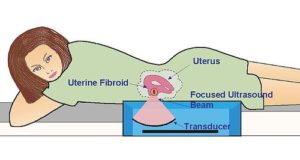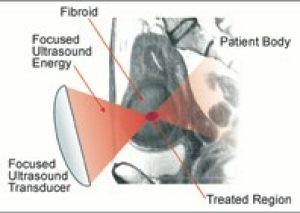Uterine Problems
The uterus is located in the lower abdomen between the bladder and the rectum. The uterus is also called the womb. It is pear-shaped, and the lower, narrow end of the uterus is the cervix. When a woman is pregnant, the baby grows in the uterus until he or she is born.
Some of the problems that can affect your uterus are:
• Noncancerous growths in the uterus, called fibroids, which can cause pain and bleeding
• Endometriosis, a condition in which the tissue that forms the lining of the uterus grows outside the uterus
• Heavy bleeding each time you have your period or between periods
• Hormonal imbalances
• Unexplained pelvic pain
Some of the Uterine Problems are
- Fibroids
- Adenomyosis
- Cysts
- Endometriosis
One in every four Indian women develops Uterine Fibroids, this is the single most common cause of infertility. Nearly 20-30% women in reproductive age group have fibroid uterus. At any given time, nearly 15-25 million Indian women have fibroid uterus.
Uterine Fibroids (also known as leiomyomas or myomas) are the commonest benign uterine tumors, with an estimated incidence of 20%–40% in women during their reproductive years.
Complications of Fibroids
- Menorrhagia (heavy periods) – the most common complication being a disruption of the woman’s ability to function normally when periods are present, and also the possibility of depression because of this. In some cases, menorrhagia can lead to anemia and fatigue.
- Abdominal pains – if the patient’s fibroids are large she may experience swelling and discomfort in the lower abdomen. She may also have a sensation of being constipated. Some women with large fibroids say their bowel movements are painful.
- Premature birth, labor problems, miscarriages – as estrogen levels rise significantly during pregnancy, and as estrogen can speed up fibroid growth, some women may experience early labor, miscarriages or complications during labor.
- Infertility – in some cases fibroids can make it more difficult for the fertilized egg to attach itself to the lining of the uterus. A fibroid that grows outside the uterus (submucosal fibroid) may change the uterus’ shape, making it harder for the woman to get pregnant.
- Leiomyosarcoma – this is extremely rare. This is a form of cancer, and it can develop inside the fibroids.
MR-guided Focused Ultrasound Surgery
Recently, Fukunishi et al. evaluated the thermal ablative effects of MRgFUS on Adenomyosis in improving clinical parameters in 20 premenopausal women; They reported that most adenomyotic lesions could be satisfactorily ablated, at 6 months, the mean uterine volume had decreased by 12.7%. Symptom severity score improved significantly during the 6 months of follow-up and no serious complications were observed.
Other studies by Korean groups and others confirmed this study and it seems that MRgFUS is a non invasive option for the treatment of Adenomyosis
Therefore, it seems that MRIgFUS represents a new, safe and effective method for the ablation of adenomyotic tissue.

Benefits of MRgFUS treatment for Uterine Fibroids
Magnetic Resonance guided Focused Ultrasound Surgery (MRgFUS) is a technology by which uterus is not affected and fertility is preserved.
MR guided Focused Ultrasound Surgery (MRgFUS) technology combines a high intensity focused ultrasound beam that heats and destroys targeted tissue, non-invasively and Magnetic Resonance Imaging system (MRI) which visualizes patient anatomy, and controls the treatment by continuously monitoring the tissue effect.

Key Benefits of MRgFUS treatment
- Non-invasive, incision-less procedure
- No anesthesia and no hospitalization required
- No ionizing radiation
- Quick return to normal activities
- Improved quality of life
- Fertility preserving


